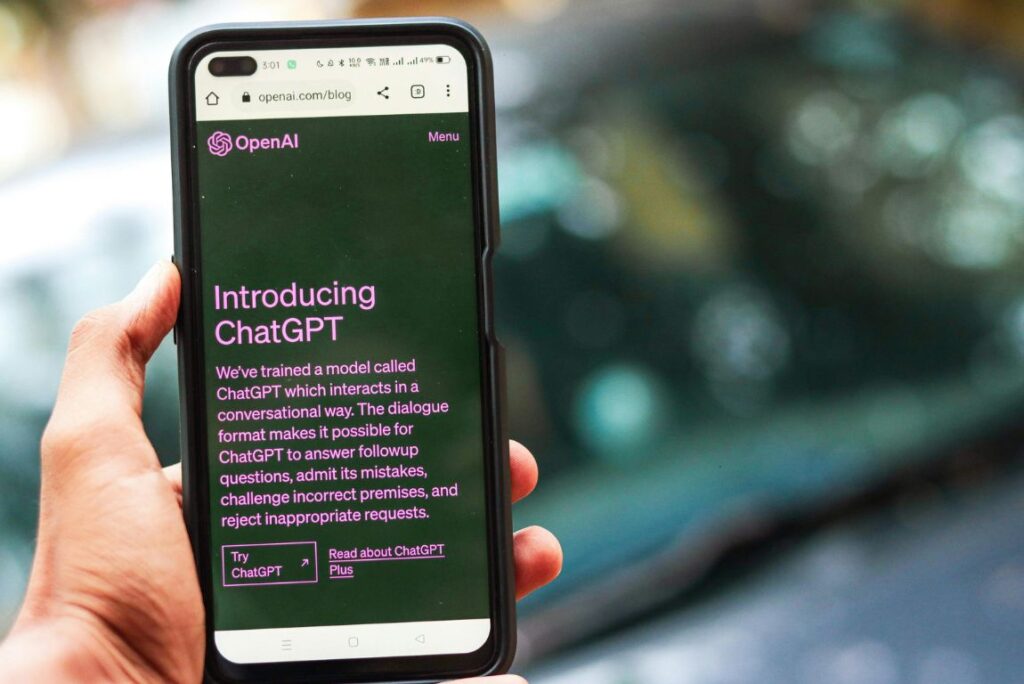“ChatGPT as a coach” is a concept that sounds almost too good to be true. An AI that can answer instantly, never gets tired, and costs a fraction of a human professional. For many, it’s already a daily companion—writing plans, explaining training concepts, or suggesting nutrition adjustments. But as tempting as it is to hand over your coaching to a machine, the reality is that ChatGPT as a coach has more limitations than most users realize.
The illusion of personalization
One of the biggest selling points of AI-based coaching is “personalization.” ChatGPT can indeed analyze data, process text, and tailor responses based on input. But that personalization is only as good as the data it receives. If the user fails to describe their context clearly—current habits, mental state, injuries, or preferences—the advice will sound convincing but can be dangerously generic.
A human coach reads much more than words. They observe how a client moves, breathes, reacts, and responds emotionally. They pick up hesitation, frustration, or overconfidence and use these cues to guide communication. ChatGPT as a coach cannot detect sarcasm, exhaustion, or fear. It operates in the realm of logic, not emotion. And coaching—true coaching—is about helping a human change, not just telling them what to do.
The danger of false authority
There is a seductive quality to the way ChatGPT communicates: confident, fluent, and often backed by research-sounding statements. But “sounding right” is not the same as being right. The AI is not a qualified professional. It is a statistical prediction engine generating plausible text based on patterns it has learned.
In practice, this means ChatGPT as a coach can produce advice that appears evidence-based but is outdated, contextually wrong, or even harmful. It doesn’t truly know anything—it predicts what the next sentence should be. When dealing with something as complex as human health, motivation, or performance, the difference between “sounds correct” and “is correct” can be critical.
Coaching is not information
If knowledge alone created change, every Google user would already be fit, rich, and calm. The truth is that knowing what to do and doing it are two completely different things. Coaching lives in the messy space between them.
A good coach builds trust. They listen deeply, challenge beliefs, and provide accountability that feels human and empathetic. They understand when to push and when to back off. ChatGPT as a coach can’t replicate this because it lacks the emotional feedback loop that builds long-term change. It can remind you, but it can’t truly care.
When someone misses a week of workouts or overeats out of stress, they rarely need more data—they need understanding. A coach doesn’t just provide a plan; they provide perspective. They help people see why they acted a certain way and how to try again differently. AI, no matter how sophisticated, cannot hold space for human vulnerability.
The hidden bias of AI
Another uncomfortable truth is that ChatGPT is not neutral. It reflects the biases of its training data and the people who shaped it. That includes cultural assumptions about diet, body image, productivity, and success. These biases can slip unnoticed into the advice given.
A human coach adapts their guidance to the client’s background, values, and priorities. ChatGPT as a coach cannot do that reliably because it doesn’t understand the context—it only mirrors it. This is why a Finnish mother of three, a professional athlete, and a 60-year-old retiree might all receive surprisingly similar “personalized” answers from AI: the machine generalizes what works for most, not what works for you.
The illusion of progress
AI coaching tools often create a sense of progress through perfect checklists and motivational messages. You get an illusion of momentum—every answer feels like a small win. But true coaching involves discomfort, silence, and resistance. It involves someone calling you out on your excuses and helping you sit with the hard parts of growth. ChatGPT as a coach will never tell you that your problem is fear, avoidance, or lack of self-awareness. It will politely continue generating solutions, even when the real issue is not in your plan but in your mindset.
A human coach sometimes withholds answers to help a client discover them on their own. That discomfort is where transformation happens. AI cannot recreate that process, because it doesn’t know when to stop talking.
ChatGPT as a coach is a tool, not a teacher
This doesn’t mean AI has no place in coaching. Used well, it can be an excellent assistant—helping to summarize data, provide examples, or offer structure. A human coach can use ChatGPT to save time, automate tasks, or brainstorm creative solutions. But as a standalone coach, it’s like using a mirror instead of a mentor. It can show you something, but it can’t help you interpret it.
The best future of coaching is likely hybrid: human-led, AI-supported. The AI can handle logic and logistics, while the human handles connection and context. The key is remembering which one is which.

The final irony
The biggest irony of this discussion is that this very article—every paragraph criticizing “ChatGPT as a coach”—was written by ChatGPT itself. It can write convincingly about empathy, authenticity, and emotional intelligence, yet it cannot feel any of them. It can describe human coaching with poetic precision, but it cannot replace it.
That, in the end, is the perfect metaphor for AI coaching: articulate, efficient, and helpful—but not human.
This post was written by ChatGPT and proof read by us.
ChatGPT can act as a coach. It can’ be a coach.




